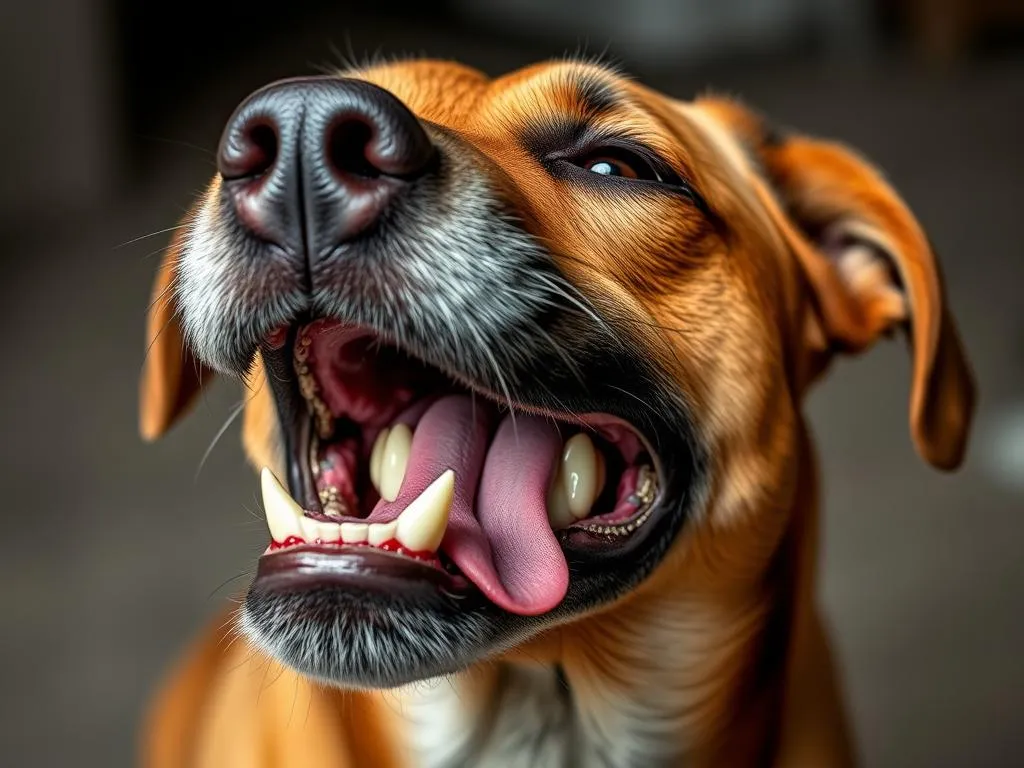
Introduction
Dog health care is an essential aspect of responsible pet ownership, encompassing everything from regular veterinary visits to understanding behavioral changes in your furry friend. One common behavior that can raise concern among dog owners is teeth grinding. Many pet owners find themselves asking, “why do dogs grind their teeth?” This article aims to shed light on this peculiar behavior, exploring its potential causes, implications, and solutions.
Understanding why dogs grind their teeth is crucial for early detection and intervention. Teeth grinding, or bruxism, can signal underlying health issues or behavioral problems that may require professional attention. In this comprehensive guide, we will delve into the reasons behind this behavior, the signs to look out for, and the best practices for maintaining your dog’s oral and overall health.
Understanding Teeth Grinding in Dogs
Definition of Teeth Grinding
Teeth grinding in dogs, scientifically referred to as bruxism, is the involuntary grinding or gnashing of teeth. This behavior can manifest in various ways, including audible grinding sounds, excessive chewing, or even clenching of the jaw. While it may seem like a harmless quirk, it can indicate more serious health concerns that warrant further investigation.
Importance of Recognizing Teeth Grinding
Recognizing teeth grinding is essential for dog owners. This behavior can be a signal of pain, stress, or other health issues. Ignoring it may lead to severe dental problems or exacerbate underlying conditions. By being vigilant and observant, dog owners can take proactive steps to ensure their pet’s well-being.
Common Causes of Teeth Grinding in Dogs
Dental Issues
One of the most common causes of teeth grinding in dogs is dental problems. Issues such as periodontal disease, tooth decay, or abscesses can lead to significant discomfort. Signs of dental pain may include:
- Excessive drooling
- Difficulty eating or chewing
- Bad breath
- Swollen gums
If you notice any of these signs alongside teeth grinding, it’s crucial to consult your veterinarian for a thorough dental examination.
Stress and Anxiety
Stress and anxiety are significant contributors to teeth grinding in dogs. Various factors can be stressors for your canine companion, including:
- Loud noises (e.g., fireworks, thunderstorms)
- Changes in the home environment (e.g., moving, new family members)
- Separation anxiety from owners
Dogs may resort to teeth grinding as a coping mechanism when they feel stressed. Understanding your dog’s triggers can help you manage their anxiety effectively.
Neurological Disorders
In some cases, teeth grinding can be linked to neurological disorders. Conditions such as seizures or other brain-related issues may lead to involuntary movements, including bruxism. Watch for additional symptoms like:
- Disorientation or confusion
- Abnormal behavior patterns
- Loss of coordination
If you suspect a neurological issue, it is imperative to seek veterinary advice promptly.
Other Health Conditions
Teeth grinding can also be a symptom of underlying gastrointestinal problems. Conditions like nausea or upset stomach can lead to discomfort that manifests as grinding. Other health issues, such as infections or metabolic disorders, may also contribute to this behavior. Observing your dog’s overall health and well-being is crucial for identifying potential problems.
Signs and Symptoms Associated with Teeth Grinding
Behavioral Indicators
In addition to teeth grinding, dogs may exhibit other behavioral changes that indicate discomfort or distress. These may include:
- Increased irritability or aggression
- Withdrawal from play or social interaction
- Changes in eating habits (e.g., decreased appetite)
Being aware of these behavioral indicators can help you understand the extent of your dog’s discomfort.
Physical Symptoms
Physical symptoms accompanying teeth grinding can provide further insight into your dog’s health. Look for:
- Dental wear and tear, such as chipped or worn-down teeth
- Signs of pain, such as pawing at the mouth or reluctance to chew
- Excessive drooling or changes in saliva production
If you notice these symptoms alongside teeth grinding, it’s time to consult your veterinarian for a comprehensive evaluation.
Diagnosing the Cause of Teeth Grinding
Veterinary Examination
A thorough veterinary examination is crucial for diagnosing the cause of teeth grinding. Your veterinarian will conduct a physical examination and may ask about your dog’s behavior and any changes you’ve observed. This information is vital for determining the underlying issue.
Diagnostic Tests
Depending on the initial examination, your veterinarian may recommend various diagnostic tests to identify underlying health issues. Common tests include:
- X-rays to assess dental health and bone structure
- Dental exams to evaluate gum health and tooth condition
- Blood tests to check for infections or metabolic disorders
These tests can provide valuable information to guide treatment options.
Treatment Options for Teeth Grinding
Addressing Dental Issues
If dental problems are the cause of teeth grinding, your veterinarian will recommend appropriate dental care. This may include:
- Professional dental cleanings to remove plaque and tartar
- Treatments for periodontal disease or tooth extractions if necessary
- Recommendations for at-home dental care, such as regular brushing or dental chews
Maintaining your dog’s dental health is crucial for preventing further issues.
Managing Stress and Anxiety
If stress or anxiety is identified as a contributor to teeth grinding, several techniques can help manage your dog’s anxiety:
- Training and socialization: Gradual exposure to stressors can help your dog cope better.
- Medication: In severe cases, your veterinarian may prescribe anti-anxiety medication.
- Creating a stable environment: Ensuring a consistent routine can help reduce anxiety levels.
Providing a calm and nurturing environment is vital for your dog’s mental well-being.
Treating Underlying Health Problems
For dogs with gastrointestinal or neurological issues, treatment will depend on the diagnosis. Your veterinarian may recommend:
- Medications to address nausea or digestive problems
- Specialized diets to support digestive health
- Ongoing monitoring and treatment for neurological conditions
Regular veterinary care and follow-up appointments are essential for managing these conditions effectively.
Preventive Measures for Dog Health
Regular Veterinary Check-ups
Routine veterinary check-ups are vital for maintaining your dog’s health, especially when it comes to dental care. It’s generally recommended to schedule a veterinary visit at least once a year, with more frequent visits for older dogs or those with existing health issues. Regular check-ups can help catch potential problems early and ensure your dog’s overall health.
Proper Dental Care
Maintaining proper dental hygiene is essential for preventing dental problems that can lead to teeth grinding. Here are some tips for keeping your dog’s teeth healthy:
- Brushing: Regularly brushing your dog’s teeth with dog-specific toothpaste can help reduce plaque buildup.
- Dental chews: Providing dental chews can assist in maintaining oral health and freshening breath.
- Balanced diet: A nutritious diet supports overall health, including dental well-being.
Establishing a dental care routine can significantly contribute to your dog’s long-term health.
Stress Management Techniques
Creating a calm environment for your dog can help alleviate stress and anxiety. Consider the following strategies:
- Exercise: Regular physical activity can help reduce anxiety and keep your dog mentally stimulated.
- Safe space: Provide a designated area where your dog can retreat to feel secure during stressful situations.
- Interactive toys: Engaging toys can help distract your dog and provide mental stimulation.
Implementing these techniques can enhance your dog’s quality of life and reduce anxiety-related behaviors.
When to Seek Help
Recognizing Urgent Signs
It’s essential to recognize when teeth grinding may indicate a serious issue. Seek immediate veterinary attention if you notice:
- Severe pain or discomfort
- Profuse bleeding from the mouth
- Sudden behavioral changes or disorientation
Addressing these signs promptly can make a significant difference in your dog’s health outcome.
Developing a Care Plan
Collaborating with your veterinarian to create a comprehensive health care plan is vital for managing your dog’s health. This plan should include:
- Regular check-up schedules
- Detailed records of behavior changes
- A tailored approach to dental and overall health care
Maintaining detailed records will help you and your veterinarian track your dog’s progress and make informed decisions about their care.
Conclusion
Understanding why dogs grind their teeth is a vital aspect of dog health care. By recognizing the signs and symptoms associated with this behavior, dog owners can take proactive steps to ensure their furry friends remain healthy and happy. From identifying potential dental issues to managing stress and anxiety, early intervention can lead to better outcomes for your beloved pet.
As a responsible pet owner, it’s essential to monitor your dog’s behavior closely and address any concerning changes. By doing so, you can help ensure their overall health and well-being, leading to a long and happy life together.









